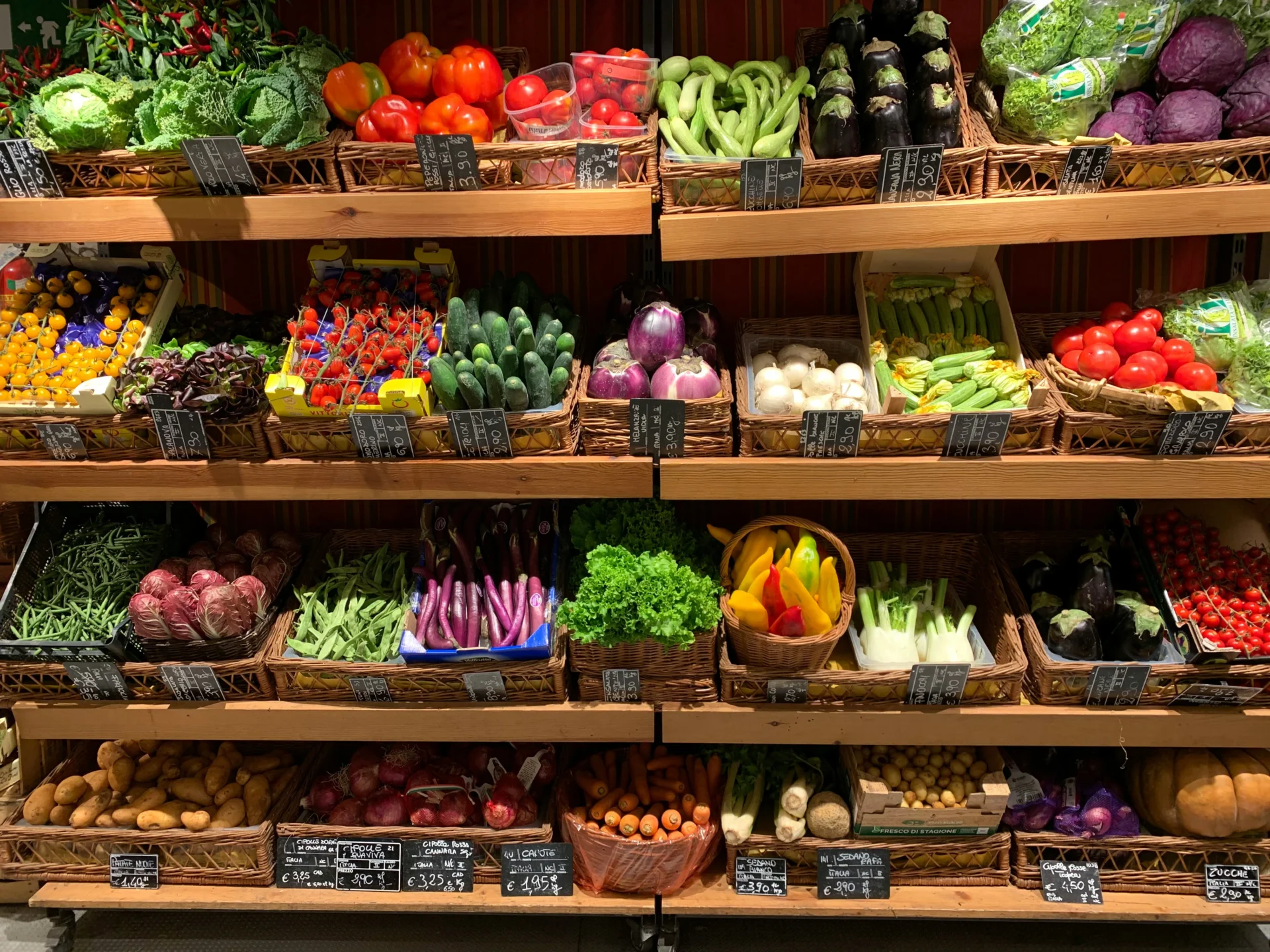The organic food industry is more than just a marketplace—it’s a movement driven by consumer values and a growing demand for healthier, more sustainable choices. People seek organic products not only for their nutritional benefits but also because they align with ethical and environmental concerns. This shift in consumer behavior makes it essential for businesses to craft an organic food marketing strategy that resonates with their audience. Unlike conventional food marketing, which often emphasizes price and convenience, organic food marketing thrives on authenticity, storytelling, and trust-building. Businesses must highlight their commitment to quality, transparency, and sustainability to attract and retain loyal customers.
Success in organic food marketing requires a deep understanding of consumer motivations and strategic positioning in a competitive landscape. It’s not enough to simply label a product as “organic”; businesses must actively engage their audience through educational content, community involvement, and digital outreach. Leveraging SEO, social media, and influencer collaborations can help brands establish credibility and expand their reach. As consumer awareness grows, companies that effectively communicate their values and differentiate themselves in the organic food space will have the greatest advantage.
Understanding the Roots of Organic Food Marketing
Organic food marketing is unique. It’s not just about the product itself; it’s about the values it represents. Consumers of organic food are often driven by more than just taste. They care about the environment, animal welfare, and their own health. Therefore, your organic food marketing strategy needs to reflect these values. Share the journey of your product from farm to table with transparency about sourcing and production methods. By doing so, you build trust and strengthen connections with your audience.
This approach differs significantly from traditional food marketing, which often focuses on mass appeal and price competition. Organic food marketing requires a more nuanced and values-driven approach. It requires a deep understanding of the motivations and desires of the organic consumer. It’s about speaking their language and addressing their specific needs. It’s about building a community of like-minded individuals who share your passion for organic food.
Building a successful organic food marketing strategy starts with understanding your target audience. Who are the people buying organic food? What are their values, their lifestyles, and their purchasing habits? Are they young families prioritizing their children’s health, eco-conscious consumers seeking sustainable products, or food enthusiasts craving unique, artisanal organic options? Once you understand your target audience, you can tailor your messaging and your marketing channels to reach them effectively.
Cultivating Your Brand Identity
Your brand is more than just a logo or a name; it’s the essence of your organic food business. It’s what sets you apart from the competition and what makes consumers choose your products over others. Your brand identity should reflect your values, your mission, and your unique selling proposition. What makes your organic food special? Is it the superior quality of your ingredients, your dedication to sustainable farming, or your distinctive flavor profile? Whatever sets you apart, ensure these key elements are conveyed clearly and consistently in your marketing materials.
Developing a strong brand identity is crucial for building trust and loyalty with your target audience. Consumers are more likely to support brands that they believe in and that align with their values. Transparency is key in organic food marketing. Consumers want to know where their food comes from, how it’s grown, and what ingredients it contains. Be open and honest about your sourcing practices, your production methods, and your certifications. This builds credibility and strengthens your brand reputation.
Storytelling is a powerful tool in organic food marketing strategy. Share the story of your farm, your farmers, and your passion for organic food. Connect with consumers on an emotional level by sharing the human side of your business. Show them the faces behind your brand and let them see the dedication and care that goes into producing your organic food. This human connection can be a powerful differentiator in a crowded market.

Sowing the Seeds of Digital Marketing
In today’s digital age, having a strong online presence is essential for any organic food business. Your website is your digital storefront, and it should be visually appealing, easy to navigate, and optimized for search engines. Your website should also tell your brand story and showcase your products in a compelling way. Include high-quality photos and videos of your organic food, and provide detailed information about your ingredients, sourcing, and certifications.
Search engine optimization (SEO) is crucial for driving organic traffic to your website. Use relevant keywords in your website content, meta descriptions, and title tags to improve your search engine rankings. Local SEO is especially important for organic food businesses that have a physical store or sell at farmers’ markets. Make sure your business is listed on Google My Business and other relevant online directories.
Content marketing is a powerful way to engage your target audience and build brand awareness. Create blog posts, articles, and recipes that are relevant to your target audience’s interests. Share your content on social media and other online platforms. Offer valuable information and insights related to organic food, sustainable living, and healthy eating. This establishes you as an authority in the field and builds trust with your audience.
Reaping the Rewards of Social Media Marketing
Social media marketing is a powerful tool for connecting with your target audience and building a community around your organic food brand. It allows for direct interaction, fostering a sense of connection and loyalty. Share engaging content, such as photos of your farm, behind-the-scenes glimpses of your production process, and customer testimonials. Run contests and giveaways to generate excitement and increase brand awareness.
Influencer marketing can be a highly effective way to reach a wider audience. Partner with relevant influencers who align with your brand values and who have a strong following in the organic food space. Influencers can create sponsored content, host giveaways, and promote your products to their followers. Choose influencers who are passionate about organic food and who have a genuine connection with their audience. Authenticity is key here; consumers can easily spot inauthentic endorsements.
Building relationships with your customers is essential for long-term success. Respond to their feedback, address their concerns, and show them that you value their business. Create a loyalty program to reward repeat customers and encourage them to spread the word about your brand. Foster a sense of community by creating opportunities for your customers to connect with each other, such as through online forums or in-person events. This creates brand ambassadors who will advocate for your products.
Harvesting Success with Email Marketing
Email marketing provides a direct and cost-effective way to connect with your customers and promote your organic food products. It allows you to deliver targeted messages right to their inboxes, sharing valuable content and special offers. Building a strong email list is crucial, and offering incentives like exclusive recipes or discounts can encourage sign-ups. Regular newsletters with updates about your products, farm, and brand story keep subscribers engaged and informed.
Personalizing your email campaigns enhances their relevance and impact. Addressing subscribers by name and tailoring content based on their past purchases or browsing behavior shows you value their individual preferences. Promoting your products and special offers through email is highly effective, especially when highlighting the unique benefits of your organic offerings. Including clear calls to action encourages subscribers to visit your website or make a purchase.
Tracking key email metrics like open rates, click-through rates, and conversions is essential for optimizing your email marketing strategy. Analyzing this data provides valuable insights into what resonates with your audience, allowing you to refine your approach and improve campaign effectiveness. This data-driven approach ensures your email marketing efforts are targeted and yield the best possible results.
Nurturing Growth Through Partnerships and Events
Partnering with other businesses in the organic food space can be a great way to expand your reach and reach new customers. Collaborate with local farms, health food stores, and other businesses that share your values. Cross-promote each other’s products and services to reach a wider audience. Joint ventures and co-marketing campaigns can be mutually beneficial and help you tap into new customer segments.
Attending farmers’ markets and other local events is a great way to connect with your target audience in person. Offer samples of your organic food, answer questions about your products, and build relationships with potential customers. These events provide valuable opportunities for face-to-face interaction and allow you to showcase the quality and freshness of your organic food. It’s a chance to build trust and create a personal connection with your customers.
Sponsoring or participating in relevant events, such as food festivals and organic farming conferences, can increase brand awareness and generate leads. These events provide opportunities to showcase your products, network with other industry professionals, and connect with potential customers. Consider sponsoring events that align with your brand values and that attract your target audience. This can be a powerful way to position your brand as a leader in the organic food space.
Wrap Up
An effective organic food marketing strategy goes beyond product promotion—it’s about fostering trust, building a community, and aligning with the values of conscious consumers. By prioritizing transparency, storytelling, and strategic digital engagement, brands can create meaningful connections with their audience and differentiate themselves in a competitive marketplace. Leveraging SEO, content marketing, social media, and partnerships will not only enhance visibility but also establish credibility and long-term loyalty. As consumer awareness of organic and sustainable choices continues to grow, businesses that stay true to their mission while adapting to evolving trends will position themselves for lasting success.
For expert guidance in bringing your organic brand to life, fishbat is here to help. As a leading New York digital marketing agency, we specialize in crafting strategies that connect with conscious consumers and amplify your message. Whether you need a compelling social media presence, SEO-driven content, or a full-scale digital marketing plan, our team can tailor solutions that drive real results. Let’s work together to grow your brand in an authentic, impactful way. Contact us today at 855-347-4228 or email hello@fishbat.com for a free consultation – because your organic story deserves to be told.


